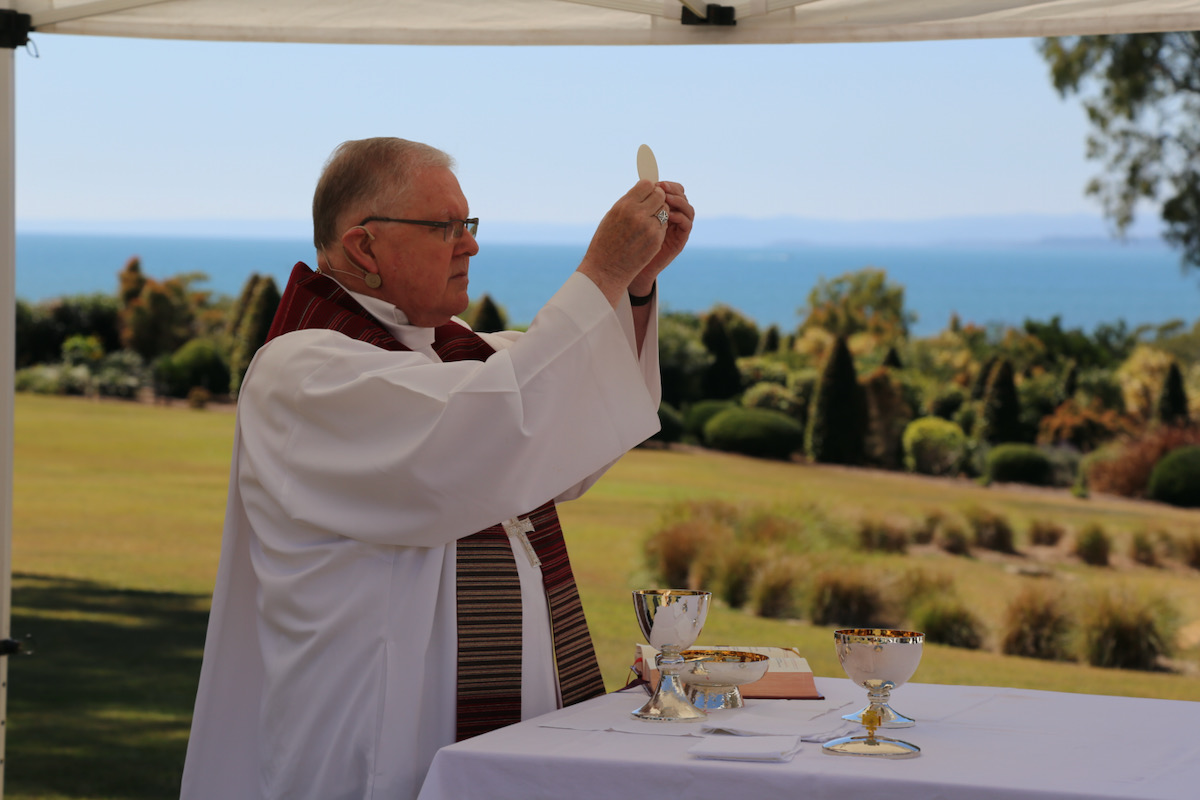Brisbane Archbishop Mark Coleridge has endorsed an Australian first nations statement that aims to give the country’s indigenous peoples an official voice in the Australian constitution.
Archbishop Coleridge, president of the Australian Catholic Bishops Conference took the historic step by visiting the coastal lands of the Quandamooka people east of Brisbane this week to hold a Mass and to proclaim his support for the Uluru Statement From the Heart.
“If we look at the situation in Australia some Australians are still excluded, and first among these are our First Nations people, who in many ways been turned into refugees in the land that they have called home for many thousands of years,” Archbishop Coleridge said, just days before the start of the first assembly of the Church’s historic Plenary Council of Australia.
A key theme of the Plenary – the first to be held in Australia since 1937 – is “renewing the Church’s solidarity with First Australians”.
The Uluru Statement was signed in 2017 by 250 aboriginal and Torres Strait islander leaders, but it has not yet received the backing of Australian lawmakers.
One of the statement’s demands is for a referendum aimed at creating an indigenous body that would advise parliament on matters affecting First Nations peoples.
Government policymaking has largely failed Australia’s First Nations peoples.
Indigenous health and employment lags far behind the wider Australian population, and incarceration rates are amongst the highest in the world.
“Our role is not to do things on behalf of aboriginal and Torres Strait Islander peoples but to listen to them, to learn from them, to accompany them, and to support them to determine their own future,” Archbishop Coleridge said.
“In 1967 Aboriginal and Torres Strait Islanders people were counted for the first time, and now they seek to be heard.
“So as Archbishop I call on all people of goodwill and good intention to support the journey of Aboriginal and Torres Strait Islander peoples by endorsing the Uluru Statement from the Heart, and by putting it into action in every way possible.”
It is significant that Archbishop Coleridge chose the traditional lands of the Quandamooka country, to proclaim his support for the Uluru Statement.
The lands takes in Stradbroke Island, Minjerribah, east of Brisbane, the site of Australia’s first Catholic mission to First Nations peoples, set up by Italian Passionist Fathers in 1843.
Quandamooka man Dean Parkin, a signatory of the Uluru Statement four years ago, welcomed the Catholic Church supporting a “greater voice” for First Nations peoples.
Mr Parkin said an indigenous body advising parliament would lead to better indigenous affairs policy an law making and that would mean better outcomes for First Nations peoples and more efficient use of government funds.
“The key thing is to give voice to those who have been previously unheard,” he said.
The Instrumentum Laboris (Working Document) of the Plenary Council that will start its first assembly on October 3 affirms the Church’s commitment to “honour and acknowledge the continuing deep spiritual relationship of Aboriginal and Torres Strait Islander peoples to this country and commit ourselves to the ongoing journey of reconciliation”.
One of the 16 sets of questions that will be asked of 280 members participating will be: “How might the Church in Australia open in new ways to Indigenous ways of being Christian in spirituality, theology, liturgy, and missionary discipleship? How might we learn from the First Nations peoples?
The Australian assembly, made up of clergy, religious and lay people, will be only the third plenary council to held anywhere in the world since World War II; the Philippines held one in 1991 and Poland in 1993.



 Loading ...
Loading ...